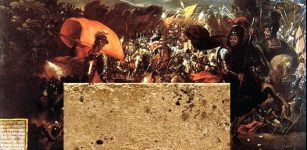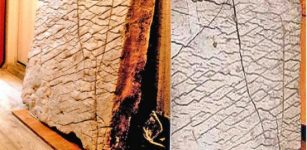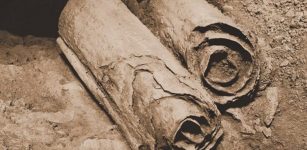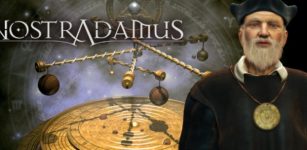Ancient Books, Scrolls And Manuscripts Burned By Church And Evil Emperors
MessageToEagle.com – Many of human history’s missing pages were wiped out by calamities and evil influential individuals who called themselves “God’s consuls” and never hid their despising of books and culture of the ancient world.
“It would be less difficult to reconstruct the unknown history of mankind if the Egyptians, Greeks and Hebrews had not transmitted it in fables and if the Catholics had not Christianized ancient rites and destroyed documents alien to their doctrines.
All of man’s past was submerged by the enterprise, which was strangely glorified by the symbol of Saint George and Saint Michael slaying the pagan dragon,” wrote R. Charroux in his book “Masters of the World”.
Will we ever reconstruct the unknown history of mankind?
To gain access to secret knowledge of our ancestors, we have to search among the countless number of fables and myths transmitted to us by generations of the ancient Egyptians, Hebrews, Greeks.
Most of this knowledge, however, has already been destroyed a long time ago…
We begin with Shih, Huang-ti (c.259-c.210 BC) who was the first Emperor of the Ch’in dynasty and founder of the first Chinese empire that unified the entire country. Shi Huang-ti developed a strong central government and a powerful, merciless army.
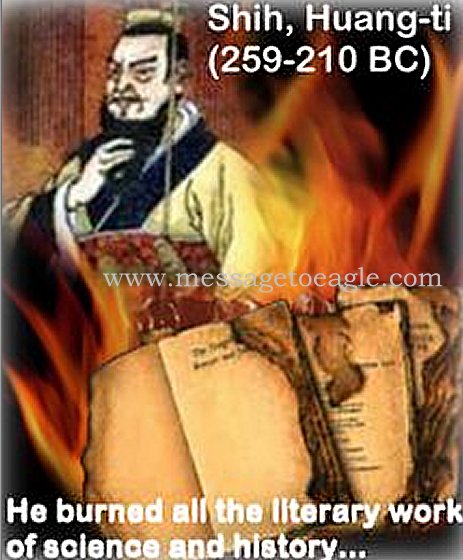
He maintained stability primarily through punishment, fear and strict control over people’s lives.
Among one of his greatest enemies were philosophical and ethical teachings of Confucius “Master Kung” (551-479 BC). He came in contact with these teachings, magic and alchemy while searching for immortality through whatever means.
He failed in his search.
Shih, Huang-ti did not agree with the teachings of Confucius, especially the significance of education. He burned all the literary work of science and history, art and music.
He buried all the Confucian scholars alive…
A great number of ancient prophetic books were burnt in ancient times.
Among them were also the Sibylline Books (“libri Sibyllini”, in Latin) of the priests of god Apollo, one of twelve gods that were especially honored by the ancient Romans. Probably written on palm-leaves, the books remained in the custody of the state and under strict control. The public were not allowed to inspect them.
They were often consulted by the Romans for more than a thousand years and carefully stored in a stone chest under ground at the base of the statue of Apollo, in the temple of Jupiter Capitolinus. They were kept under the custody of ten to fifteen officers who guarded them day and night.
Someone decided to destroy these priceless works and succeeded to do it.
The Sibylline Books perished in the burning of the temple and it took place on July 6, 83 BC. Only fragments of them have survived. They were deliberately destroyed. Even their copies were destroyed by Stilicho (ca. 359-408), a high-ranking general and Consul of the Western Roman Empire, at some time, just before his death in the year 408.
The papyri of the Egyptian library of the Temple of Ptah in Memphis were totally destroyed, probably due to the destruction of the building. The same fate suffered 200,000 volumes composed largely of ink-written works in the library of Pergamus in Asia Minor. The city of Carthage, razed by the Romans in a seventeen-day fire in 146 B.C., is said have “possessed a library of half a million volumes” that were reduced to ashes by the brutal Roman wave of destruction in the Middle East…” (R. Noorbergen, “Secrets of the Lost Races”)
But the burning of the Alexandrian library in the Egyptian war of Julius Caesar is believed to be the greatest loss to history of humankind. There were completely destroyed by fire, 700,000 scrolls considered the greatest collection of books in antiquity. The Alexandrian book depository survived the destruction and flourished over 700 years until Omar, the second Khalif of Islam decided to use the library’s priceless scrolls to heat the city’s bathing facilities in 640 AD, according to one version of the story, but there many of them.
Books, scrolls and manuscripts have long been the subject of a permanent and almost obsessive hunt. The Inquisition of the Middle Ages reduced the number of manuscripts to nonexistence and Leo the Isaurian (c. 680-740), an Byzantine emperor from 717 until his death in 741, was totally against any devotion to holy images.
He forbade the veneration of icons and burned three hundred thousands manuscripts in Byzantium.
“By the sword and the cross,” Charlemagne became master of Western Europe and a great killer.
Acting on the decrees of the Councils of Arles, Tours, Nantes and Toledo, Charlemagne, King of the Franks and Emperor of the Holy Roman Empire (742 – 814) forbade worship of stones like menhirs, cromlechs and celebration of the rites related to trees and springs.
Charlemagne ordered the destruction of all objects and records related to all the ancestral pagan rites.
He issued warning to all “men who goeth about in the masque of a stag or a bull-calf,” who dress “in the skin of a herd animal or put on the heads of beasts,” “who make themselves into wild animals,” or “who have turned themselves into devils…”
Many thousands of people were slaughtered just because they wanted to keep faith with their old gods. Those who refused to accept Christianity, or its new king… had to die!
See also:
10 Magnificent Ancient Libraries
In his book “Books on Fire”, a French writer and historian, Lucien X. Polastron says that
“Gregory I, prefect of Rome, pope in 590, and future saint (!), ordered the remaining copies of Cicero, Titus-Livy, and many other authors of the great era burned for the sole reason that the young people of the sixth century clearly preferred reading them over the Christian scriptures…”
The Roman Emperor, Diocletian (AD 240 – AD 311) burned the libraries with their Egyptian and Greek documents in the year 296. Another Roman Emperor, Augustus (27 BCE-14 CE) and later a high priest of ancient Roman religion, ordered two thousand “superstitious” books to be burned.
Saint Paul at Ephesus (or Paul the Apostle) was a Hellenistic Jew, who called himself the “Apostle to the Gentiles” was one of the most notable of early Christian missionaries.
This notable man did not like the so called “strange things”. He burned all books dealing with the subject.
The lists of all burned literary works and witch-hunting” activities in ancient times are long.
We have just named a few of them.
Copyright © MessageToEagle.com. All rights reserved. This material may not be published, broadcast, rewritten or redistributed in whole or part without the express written permission of MessageToEagle.com






